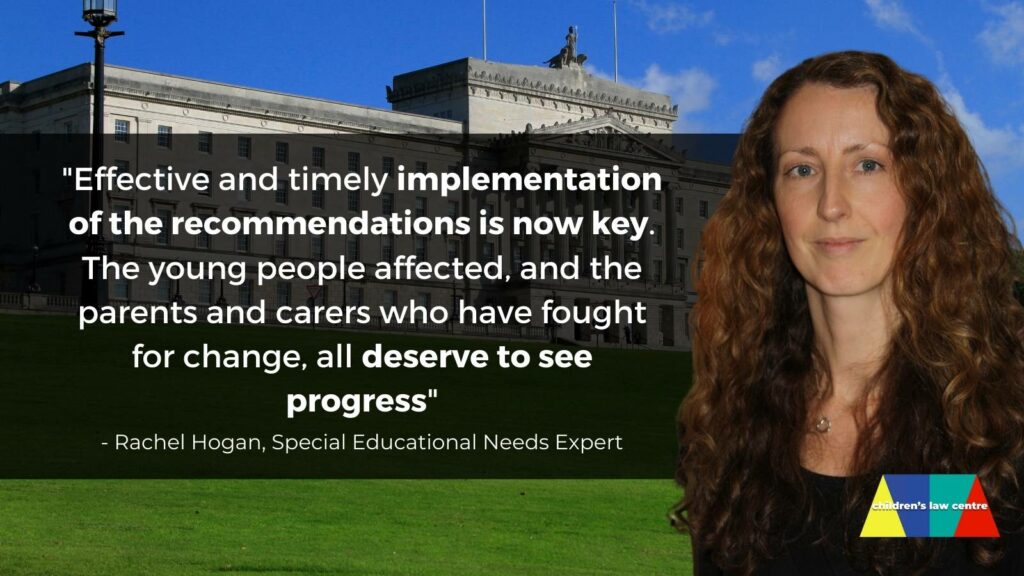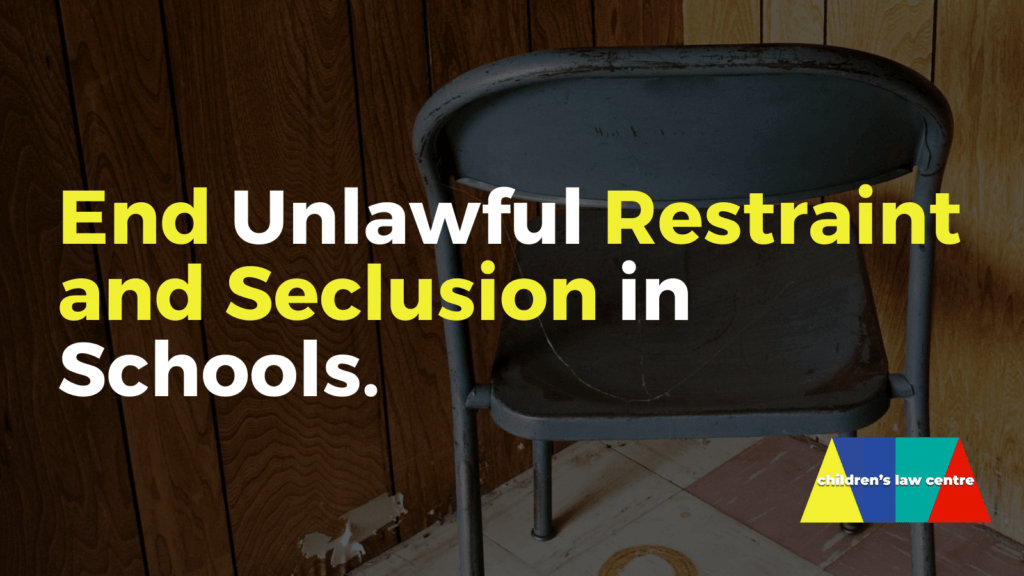15 October 2025
“The Northern Ireland Commissioner for Children and Young People (NICCY) and the Children’s Law Centre (CLC) have yesterday written to the Minister of Education, Paul Givan MLA, reiterating serious concerns which resulted in their withdrawal from the Department of Education’s Restraint and Seclusion Task and Finish Group, as notified to his department on 13th August 2025.
“It is extremely disappointing that neither organisation to date has received any acknowledgement or response whatsoever in relation to our correspondence which confirmed our immediate withdrawal.
“Both NICCY and CLC, in good faith over many years, have made consistent and significant efforts to support the Department in this extremely urgent policy area with a view to implementation of long-awaited systemic change. Change which will prevent human rights abuses against children and protect education staff from legal liability by enabling child rights compliance in education settings.
“It was the shared understanding of all interested parties that both legislative reform at the earliest opportunity and the production of child rights compliant statutory guidance would be the vehicles through which positive change would be achieved. This is no longer the case.
“We have repeated our concerns to the Minister and emphasised a number of key recommendations which the Department had itself previously made and reported upon in March 2022, including the need for immediate reform of Article 4 of the Education (NI) Order 1998 which permits the use of force by adults against children in education settings for the purpose of “maintaining good order and discipline”. This outdated legislative provision is incompatible with the fundamental human rights of children in a modern society.
“Through our work with children and families, NICCY and CLC are aware that potentially unlawful force has been used disproportionately against young, disabled children, who may have limited or no ability to tell their parents and carers what has happened to them. It is truly shocking in light of all of the reports and evidence available, and given all the support that has been offered, that the Department has broken its promises and allowed both children and education staff to be left in this extremely vulnerable position.
“NICCY and CLC have also called for robust recording, reporting and monitoring procedures alongside regular, mandatory, standardised training for staff in education settings, with a clear commitment to financial resourcing to facilitate full and effective implementation of the statutory guidance.
“As matters stand, we have had no assurances that the most recent draft guidance or associated processes will guarantee the most basic children’s rights protections, or that education staff will be protected from potential legal liability when faced with decisions about restrictive practices, including use of force against children in education settings.
“Despite having taken all reasonable measures that we can to assist the Department to date, NICCY and CLC have lost all confidence that this process will lead to child rights compliant change. In a situation which may very well regress children’s rights, we can no longer remain part of the Group or any connected process.
“We urge the Minister to reflect upon all of the work that led to his Department’s recommendation in March 2022 for legislative change and ask that he honours the commitment to bring forward reform without delay. It is his responsibility, in co-operation with others, to ensure that every child is safe and protected, valued and supported.”




